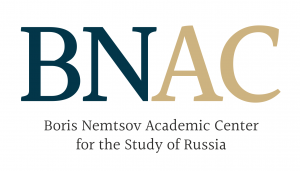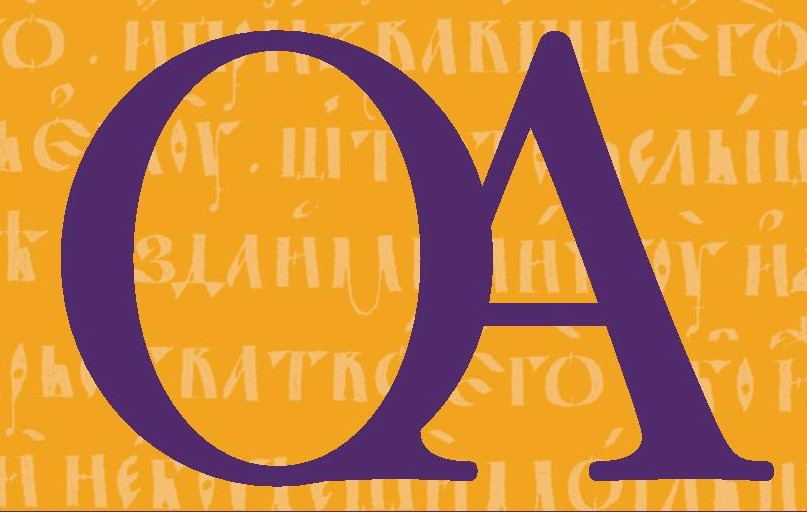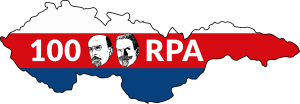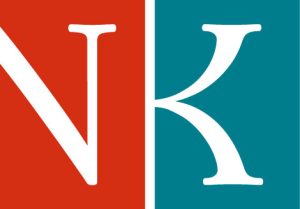About the Russian Studies Program
Program Duration: 2 years.
Main language of the program: Russian. Some subjects are taught in English. Knowledge of Czech is not required. Students can take courses in Czech, Russian, English, German and other languages free of charge.
The main focus of the program is a comprehensive study of Russia after 1991. It covers the failed transition to democracy and the current political regime; the economic transformation of Russia versus countries with socialist experience; patterns in Russian foreign policy; colonialism in relation to other countries and indigenous peoples; the state of Russian society; propaganda, and the role of independent media. Students will learn to become proficient in scientific research methodology. The program is flexible. We will add new disciplines each semester that reflect the goals of the program and the academic interests of our students.
Teachers
The master’s program will be taught by Czech professors, Russian-speaking scholars who cannot continue academic activities in their home countries, and guest lecturers from Europe, Israel, and the United States.
Permanent teachers
- Dmitry Dubrovsky, PhD in History
-
- Research interests: human rights, minority studies, academic rights, and freedoms in Russia.
- Alena Marková, PhD in History
- Research interests: modern history of Central and Eastern Europe, studies of nationalism and national identity, language policy, processes of post-Soviet transformation.
- Sergey Medvedev, PhD in History
- Research interests: political history of Russia, theories of social and political transformation.
- Ivan Fomin, PhD in Political Science
-
- Research interests: methodology and research methods of political science and economics.
- Ekaterina Rycheva, PhD in Philology
- Research interests: modern Russian language, mass media, advertising, and political rhetoric, language of Russian and Soviet cinema.
- Marek Příhoda, PhD
- Research interests: literature and history of Eastern and South-Eastern Europe in the Middle Ages and Early Modern times.
- doc. Hanuš Nykl
- Research interests: Russian philosophy of the nineteenth and first half of the twentieth centuries, religion in Russia and Eastern Europe, Russian interwar emigration in Czechoslovakia.
- Olga Leshkova, Master in Slavic Studies
-
- Research interests: politics of memory, mythologization of history, historical narratives in literature and art.
- Maria Kuznetcova, Master of Culturology
-
- Research interests: history of post-Soviet Russia, historical policy and research.
- Stanislav Tumis, Ph.D.
- Research interests: history of Soviet Union, Russia and Ukraine.
Guest lecturers
- Timothy Fry, PhD in Political Science, Professor, Columbia University, USA
-
- Research interests: post-communist political and economic change, comparative political science.
- Anat Gofen, PhD in Political Science, Associate Professor, Hebrew University of Jerusalem, Israel
- Research interests: the design, implementation and consequences of public policies, the relationship between citizens and government, and governance at the neighborhood level.
- Andrej Richter, PhD, Professor at Comenius University in Bratislava, Slovakia
- Research interests: international standards of media regulation, legal foundations of Internet journalism.
Curriculum
The program includes seven required courses and elective courses.
The list of elective courses is updated each semester in accordance with student requests and the vision of the program faculty and instructors.
Selected courses will be taught by guest lecturers from other universities.
Compulsory courses
- Research Methodology
- Evolution of the Russian political system after 1991
- Comparative analysis of political regimes in the region
- Economics of Post-Communist Transit
- Russian foreign policy in the post-Soviet era
- Russian society after 1991
- The Role of Media in Modern Russia
Elective courses
Students will select courses from 4 blocks:
Block 1
Topics: Contemporary Russian society, domestic politics, and economics.
Block 2
Topics: Russian foreign policy after the collapse of the USSR.
Block 3
Topics: Contemporary Russian political language and symbols, the culture and problems of self-identification.
Block 4
Topics: Journalism and the current state of Russian media.
Examples of elective courses
- Putinism and Authoritarian Reversal in Russia
- Historical Consciousness and Identity in Russia: From Empire to the Putin Era
- Nationalism, Minorities, and Identity Conflicts in Russia
- Religions and Confessions in Contemporary Russia
- Russian-Belarusian Relations after the Collapse of the USSR
- Central Asia after the collapse of the USSR
- Russia’s Role in International Organizations (UN, OSCE, Council of Europe)
- Disinformation, sanctions, foreign agents: Russia and its environment
Exchange programs
The ERASMUS+ European exchange program allows for student exchange with universities in the EU and Israel.
The duration of the exchange is one or two semesters.
Our partner is already Sciences Po University in Paris, and we are in the process of negotiations with other programs.
Cooperation with Stanford University
Stanford Russian-American Forum (SURF) is a student exchange program that brings together about 25 Russian and American students. The program is aimed at implementing joint projects and assumes a hybrid format of work: online sessions and annual conferences.
Katherine Stoner, director of the Center for Democracy, Development and the Rule of Law (CDDRL) at Stanford:
“The Russian Studies master’s Program and SURF will bring together students from the two countries to work together on research on topics of interest to U.S. and Russian participants. It is more important than ever to stay in contact and exchange views on issues that have accumulated. We anticipate a more constructive relationship between the U.S. and Russia in the future. This project can lay the foundation for such a dialogue, with the expectation of normalizing bilateral relations at the governmental and societal levels.”
Enrollment
Twenty students will be enrolled in the program each year.
Admission requirements and information about the entrance exam
- Bachelor’s degree from a recognized university in any discipline
- Russian language at C1–C2 level
- English language at least B2 level. Will be tested in the form of a motivation to study (maximum 20 points).
- The entrance exam will be held EXCLUSIVELY in an oral, present format
- Basic knowledge of Russian history (maximum 40 points)
- Knowledge of political and social realities after the collapse of the USSR (maximum 40 points).
- The maximum score on the entrance exam is 100 points. The minimum passing score for participation in the competition is 50 points.
At the entrance exam, it is necessary to present a list detailing literature you have read.
The list of recommended literature and a tentative list of questions for the exam are available here.
Tuition
By law, all foreign language academic programs at Czech universities charge fees.
Scholarships of the Foundation
The Nemtsov Foundation will provide up to 15 scholarships for students in the master’s program.
The scholarship provides $500 per month. Scholarship recipients are decided based on their score on the entrance exams and their financial need.
The scholarship is initially for one semester. It will be extended for one more semester in case of high academic performance.
You must apply for the scholarship at the same time you apply for admission.
Visa support
Currently, the Czech Republic does not issue new student visas to Russian citizens.
The Nemtsov Foundation and the Academic Center will assist applicants and students of the Russian Studies master’s program in obtaining visas, but we cannot guarantee anything at this time.
We strongly recommend that applicants who do not have a visa fill out the special form at the same time as they apply for their studies. This should be done as early as possible. Please do not delay the submission until the deadline!
Important dates, 2023
- 30 June – 14 August: acceptance of applications for admission
- 14 August: application deadline
- 4–6 September and 11 September: entrance exams
- 2 October: beginning of the semester
After the first year, regular entrance exams are scheduled for late May/early June.
Checklist for filing documents
- Fill in the application form on the website of Charles University
- Optional: fill in the application form for scholarship and visa support from the Nemtsov Foundation
- Pay the registration fee
- Apostilize a diploma of higher education
- Take an in-person entrance exam
- For more information on submitting documents, please see the FAQs below.
FAQ
For more information on submitting documents, please see the FAQs below.
Can I combine Russian Studies with other educational programs?
No, the Boris Nemtsov Russian Studies program may not be combined with other master’s programs.
Is distance learning possible?
No, it’s a full-time program.
What time do master’s students study? Is it possible to combine master’s studies with work?
Study can take place from Monday to Friday, but the number of pairs allows combining study and work. Most students work part-time and students make their own individual schedule.
Is it possible to transfer to a master’s program at Charles University if I am studying at a master’s program at another university? Or, for example, can I transfer from one master’s program to another?
Yes, it is possible. Admission to another master’s program or another university is possible only on the basis of entrance exams, you must apply in time and successfully pass the admission process.
Is it possible to enter on a free place in a master’s program?
By law, all academic foreign language programs at Czech universities are fee-paying. You can apply for the Nemtsov Foundation scholarship.
For applicants to the Russian Studies program, is an international language certificate or an internal qualifying exam in English or Czech required?
Knowledge of Czech is not required. Students can attend courses in Czech, English, Russian, German and other languages free of charge.
No English language certificate is required, but you must demonstrate a B2 level of proficiency. This will be evaluated in the format of a free conversation oral exam about your motivation to study.
Are there any benefits for people with disabilities at Charles University’s master’s program?
Charles University is committed to creating comfortable conditions for people with disabilities. After successful completion of the entrance examinations, you can contact the relevant department of the dean’s office with specific questions regarding the organization of your studies (e.g., individual approach or reduced workload):
Contact persons with disabilities department: David Čáp, email: david.cap@ff.cuni.cz
Is dormitory accommodation provided for master’s students?
Yes, students of the faculty are offered places in the hostels of Charles University, page of Charles University hostels (in English).
You can find detailed information about the conditions of enrollment, offer of places and current prices (in English) here.
The prices for accommodation in the hostel depend on the comfort of the room and the location of the hostel (the closer to the city center, the higher the price). At the moment, the accommodation fee for a standard double room is about 4,000 kronor (160 euros) per month.
Filing a submission
How do I apply to the programme?
To apply, you must fill out the online form and pay the application fee on time; basic admission instructions and a video (in English).
You can only apply to study at the Faculty of Arts, Charles University, electronically via the Student Information System (Czech: Studijní informační systém; abbr. SIS). The website is available in Czech and English.
You will need to log in using one of the following methods to submit your application:
- If you are a current student of any faculty of Charles University, use your student ID to log in. The equivalent of the login is also the personal number on your student ID card (under the photo). In case of problems with your password, please go to the page of the Central Identification Service (Centrální autentizační služba UK / CAS) to get a new password.
- If you have previously applied to study at any department of Charles University and did not become a student, please use the same email and password as you did with your previous application.
- If you are a new applicant, have never previously studied at any faculty of Charles University and have not applied to study (including unsuccessfully), you will be asked to register before submitting your application. Registration is done by entering your email address. We do not recommend using a school or work email account for this purpose, which you will lose access to after graduation or dismissal! You will be sent an email with an active link that will take you to a page where you will need to set a password. This email account and password must be used throughout the entire enrollment process, as it is the only login you will use to see all your applications, exam invitations, and results.
- If you have already filled out an application and logged in again, you will find your name in the upper right corner of the form, and after clicking on the button Moje přihlášky („My applications“) you will see an overview of the submitted applications for training….
Please do not submit a new application from a different email address, as this makes it more difficult to be identified not only to the system, but also to the staff of the entrance examinations department. If you are unable to log in to an application account already created, please contact the Admissions Office at prijimacky@ff.cuni.cz.
After successful completion of the entrance exams, the applicant will receive a timely email to his or her email account.
How can I pay the registration fee?
The registration fee is CZK 830.
Bank details:
Bank account number: 000000-0085631011
Bank code: 0100
Specific symbol: application identification number
Variable symbol: 820001
IBAN: CZ960100000000000000000085631011
SWIFT: KOMB CZ PP
Information about payments from bank accounts in foreign currency:
If you are paying in a currency other than CZK, please check the bank transfer fee and add it to the payment amount so that the total amount received by the university is not less than the registration fee. If you pay by bank transfer, we recommend that you send us a confirmation of payment together with your application reference number to prijimacky@ff.cuni.cz. This way we will be able to find your payment in the electronic filing system. It may take a few days for the payment to be processed. After a week, we recommend that you check whether the payment has been processed and authorized as payment for your application.
If you wish to avoid the overlap associated with paying the application fee, we recommend that you make payment by bank card in the student information system. We strongly recommend that you choose this method of payment, as in this case it is impossible to make a mistake in the bank details and you will receive the payment instantly.
Attention to owners of bank cards issued by Russian banks. You cannot make payments from Russian cards, so we recommend you to arrange payment with relatives, friends or colleagues who have cards of foreign banks. If you do not have a person to whom you can make such a request, please write to us about the problem to russianstudies@nemtsovfund.org.
Attention of owners of bank cards issued by banks of Belarus included in the lists of sanctions. Before making a payment, please make sure that the issuing bank is not under sanctions. Payments by cards of these banks are not accepted. In case you have this problem and cannot arrange payment with your relatives, colleagues and friends, write to us russianstudies@nemtsovfund.org
Can I apply remotely?
Yes, you need to fill in the application form and pay the registration fee. Detailed information on application payment terms and bank details is given in the answers to the questions above.
What is the address of the Student Admissions Office?
The entry examinations for the programme will take place in the main building of the Faculty of Arts, Charles University, nám. Jana Palacha 1/2, 116 38, Prague 1). The application process takes place via the electronic student system. For questions regarding the administration of entrance examinations at the Faculty of Arts, please contact: prijimacky@ff.cuni.cz
Do copies of documents need to be notarized?
Only the translation of the higher education diploma has to be notarized (see answer below).
Is it necessary to put an apostille on a diploma of higher education and when should it be done?
Proof of higher education (at least a bachelor’s degree) is the main prerequisite for admission to the program. If you have not completed higher education in the Czech Republic, you will need to have the diploma recognized (https://prag-study.com/ru/blog/nostrifikaciya-diploma-v-chehii-_-poshagovaya-instrukciya-2019). It does not apply to diplomas issued in four countries – Slovakia, Poland, Hungary, Slovenia. There are two ways of recognition (it is recommended to choose the method of recognition when submitting the electronic application):
- General recognition is a more complicated and longer process. The advantage is that you receive an official confirmation, which serves as a temporarily unrestricted document in the territory of the Czech Republic. We recommend choosing this option, for example, if you want to apply for a job in the Czech Republic, where such confirmation is required.
All information on the procedure of foreign diploma recognition at Charles University (in English) is available here.
- Internal diploma recognition is a simpler option is for the purpose of studying in the at CU FA. After receiving the official notification of admission (you cannot start earlier), you bring a certified copy of your diploma to the entrance examinations office in person (recommended) or send it by mail (the dean’s office does not accept originals and only works with the paper version). You can get a copy certified at all CzechPoint locations (e.g., any Czech Post office or City Hall, the nearest post office is located 200 meters from the main building of the faculty). The faculty collects a fee for recognition: 880 CZK (about 40 EUR). If your diploma is not in English or Czech, you will have to have it translated into English or Czech (with an apostille). The recognition process itself will take a few days. Please be warned that the faculty does not issue official confirmation and this recognition is done only for the purpose of admission to study at the Faculty of Ats, Charles University.
You may find all information about the conditions for the recognition of diplomas at CU FA and payment of the fee here (in English).
ENTRANCE EXAMS
What is the passing score?
The maximum score in the entrance examination is 100 points. The passing score, which is always at least 50 points, is not set in advance. Its size may change depending on the number of applications and the scores of participants in the entrance exams. The Russian Studies program is opening this year for the first time, so we do not yet have statistics from previous years. We advise that you read the list of exam questions and recommended reading here.
Is there a separate contest for people with disabilities or orphans?
No, there is no separate competition, but individualized conditions or modification of the entrance exam can be coordinated with the appropriate department of the dean’s office. Contacts are listed here.
Can I take placement tests remotely?
No, you are required to attend the in-person exam.
What if I can’t take the entrance exam on the scheduled day? Is there an alternate day?
Yes, it is possible to take the entrance examination on an alternate day for serious reasons; the application can be submitted through the electronic system after receiving the invitation to the examination (specific information about the application deadlines and alternative examination days will be provided to the applicant together with the invitation). General information (in English) can be found here (section 3.5).
Contacts
All official information from Charles University is available on the information page of the program.
Follow the latest news on the social media of the Nemtsov Foundation for Freedom and on the website of the Nemtsov Academic Center for Russian Studies.
If you still have questions about the program, admission requirements, paying the application fee, or applying for the fellowship, please prijimacky@ff.cuni.cz
Media
- Interview with Zhanna Nemtsova for Radio Prague: “Russia must be studied in order to have someone to build the Russia of the future.”
- DOXA: Why does a Prague university proposes study of Russia? About the new “Russian Studies” program at Charles University.
- Radio Liberty: Charles University opens master’s program in Russian language



